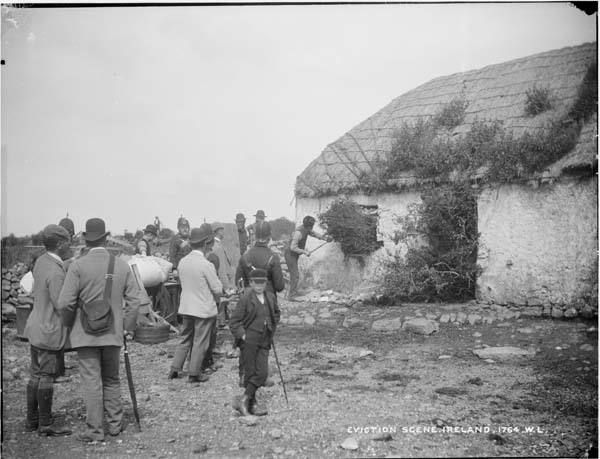Irish republicanism has always had a weak spot when it comes to history. While we can name every battle, every martyr and graveyard in this country’s perennial struggle for sovereignty and independence, we fail to look at the bigger picture and learn the lessons of that history.
Much will be made of the Civil War period as being the result of a sell-out. In reality the Irish ruling class has always been consistent in its principles. Its interests have never been with an independent and united Ireland. The Free State represented the interests of that class of ranchers, big-house aristocrats and industrialists and the gombeenmen who always acted as the servants of imperialism.
Not for nothing was the newly formed CPI the first party to oppose the Treaty. Marxism offers a powerful means of understanding the broader political struggle. Republicans such as Tadhg Barry and Liam Mellows learnt through the independence struggle the famous maxim of Henry Joy McCracken that “the rich always betray the poor.” But the poor can only be betrayed if we put our faith in the rich in the first place.
Among those most opposed to the Treaty were Cumann na mBan and Fianna Éireann. Women and youth were the ones most opposed to the counter-revolution, and it was they who were the most oppressed by the state that emerged in the 26 Counties, as exemplified by the mother-and-baby homes.
The labour movement stood aside from the Civil War and declared a general strike “against militarism.” It was the failure of the workers’ movement as much as of the republican movement to see the class interests behind the Treaty that allowed the carnival of reaction to triumph.
Connolly’s lesson on how the national struggle and class struggle need to be intertwined was lost amid a non-materialist and simplistic struggle between economism and nationalism. We have not yet learnt the lessons of our defeat a hundred years ago and, as Irish unity draws closer, are sleepwalking into the same mistakes.
There are those who oppose a united Ireland because it will not be a ready-made socialist republic, treating socialism as just a slogan rather than something substantial. The excuse is the lack of radicalism within Sinn Féin.
This gives Sinn Féin too much credit, in all honesty. While Sinn Féin is high in the opinion polls, and likely to be in government, north and south, after the next general election in the 26 Counties, there is a difference between being in government and being in power.
It might surprise those not familiar with Irish history to learn that Fianna Fáil in the 1930s was to the left of the party now led by Mary Lou McDonald. Fianna Fáil was red-baited by the Blueshirts with anti-communist and “shadow of the gunman” propaganda because it provided council housing, state companies and a basic welfarism while undoing the more unpopular aspects of the Treaty.
It’s no surprise that this Fianna Fáil was able to win the support of a large section of workers and small farmers, much like Sinn Féin now. Its role was exactly that: to get the working class to buy in to the state. The priority was developing a native capitalism that could get more concessions from Britain—hence the maintaining of parity with the English pound.
It was Fianna Fáil that delivered the 26 Counties into the EEC (now the EU) and opened the country to the primarily American transnationals. Today the Irish ruling class has made a show of criticising the British while using the Americans and EU as allies. To reduce the struggle against imperialism to one just against Britain is to miss the point. The Irish Citizen Army declared Neither King nor Kaiser but Ireland, yet today some of those who claim its legacy try to use Washington and Brussels to bring about a united Ireland.
Fianna Fáil used republicanism as a tactic rather than a principle; and there is reason to believe they will not be the last to do this. The question remains concerning when Sinn Féin will reach its SYRIZA moment. Who can forget the cries of óchi [no] around Europe only to see SYRIZA capitulate to its EU creditors!
A united Ireland is the future, so we must build it today. Our opponents will negotiate their united Ireland in back rooms, business forums, and the columns of the Irish Times. Our united Ireland has to come from going to our people and be built in struggle with them.
To an extent we already have an Ireland united, a people that—north and south, Catholic, Protestant, and neither—are united in their alienation from the political establishment acting against our interests, united in their lack of a say in what is decided for us in London, Brussels, or Washington.
We have to learn from history and organise as a class to bring about a republic worthy of the name.






